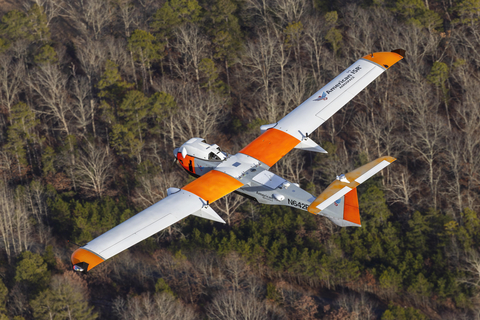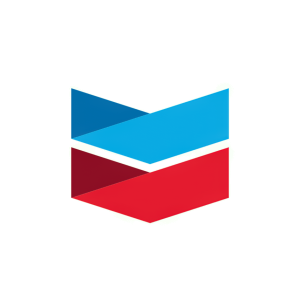Chevron Pipe Line Company and American Aerospace Technologies to Fly Unmanned Aircraft in San Joaquin Valley
Chevron Pipe Line Company and American Aerospace Technologies received a waiver from the FAA to conduct unmanned aircraft surveillance in the San Joaquin Valley. The AiRanger UAS, designed by AATI, supports aerial surveillance for Chevron's pipeline facilities. The DAA system capabilities were demonstrated in California, leading to the issuance of a waiver. The AiRanger UAS is a fixed-wing aircraft capable of long-range operations beyond visual line of sight, marking a milestone in unmanned aviation.
The collaboration between CPL and AATI to develop an aerial patrol solution with advanced technology for safe and cost-effective facility inspections is commendable.
The approval for commercial operations of the AiRanger UAS in the U.S. for the first time is a significant achievement, enabling transformative pipeline surveillance.
The intelligent sensors and real-time communications of the AiRanger deliver actionable data at an unprecedented scale, enhancing safety in operations across the country.
The partnership with regulatory agencies to ensure safe operations for emerging technology highlights Chevron's commitment to exploring and implementing innovative solutions in the energy sector.
Despite the technological advancements and regulatory approvals, there may be challenges in the implementation of the AiRanger UAS for routine surveillance and inspections due to operational complexities or unforeseen issues.
The reliance on autonomous aerospace technology and unmanned aircraft systems introduces potential risks related to cybersecurity, data privacy, or system malfunctions that could impact operations and regulatory compliance.

The AiRanger has been cleared for use in pipeline surveillance. (Photo Courtesy: Chevron/AATI)
The Detect and Avoid (DAA) system’s capabilities were demonstrated during flight operations in
“CPL and AATI have been on a journey since 2019 to develop an aerial patrol solution with technology that advances safe, reliable, and cost-effective routine facility inspections and pipeline system surveillance,” said Stephanie Beveridge, president of CPL. “Through collaboration with the FAA, we are working to do just that in the San Joaquin Valley.”
The AiRanger UAS is a fixed-wing, unmanned aircraft system capable of long-range operations beyond visual line of sight. The aircraft weighs 220 pounds with a wingspan of about 18 feet and can fly over 700 miles and up to 17 hours at up to 17,000 feet.
“For the first time, an unmanned aircraft weighing more than 55 pounds that flies above 400 feet and beyond visual line of sight has been approved for commercial operations in the
“CPL operates approximately 3,000 miles of regulated pipelines nationwide. The AiRanger UAS beyond visual line of sight operations will help transform routine oil and gas pipeline surveillance and inspections required by the Department of Transportation’s Pipeline and Hazardous Materials Safety Administration (PHMSA) using automated intelligence solutions,” said Roy Martinez, project manager for the UAS initiative and digital advisor for operations in CPL. “CPL’s coordinated efforts with the FAA and AATI to deploy this program is just one example of how Chevron continues to work with federal agencies to explore and implement emerging technologies to further Chevron’s purpose of developing the affordable, reliable, ever-cleaner energy that enables human progress.”
CPL and AATI have been supported by End State Solutions, LLC, to build collaborative solutions with key regulatory agencies that enable safe operations for emerging technology and new uses for autonomous aerospace technology.
Pictures and Video for Media Use:
About Chevron
Chevron is one of the world’s leading integrated energy companies. We believe affordable, reliable, and ever-cleaner energy is essential to enabling human progress. Chevron produces crude oil and natural gas; manufactures transportation fuels, lubricants, petrochemicals and additives; and develops technologies that enhance our business and the industry. We aim to grow our oil and gas business, lower the carbon intensity of our operations and grow lower carbon businesses in renewable fuels, carbon capture and offsets, hydrogen and other emerging technologies. More information about Chevron is available at www.Chevron.com
About American Aerospace Technologies, Inc.
Founded in 2002, AATI is a leader in intelligent airborne sensing and surveillance services for energy and other critical infrastructure. We deliver services with conventional aircraft, drones, and medium-altitude, long-endurance unmanned aircraft. AATI has been flying long-endurance UAS Beyond Visual Line of Sight (BVLOS) in the national airspace system since 2010.
About End State Solutions, LLC
End State Solutions LLC is focused on civil certification and approvals with deep expertise in aerospace certification and operations. The End State Solutions team has contributed to multiple industry achievements in autonomous aerospace and emerging aviation technology. As the pace of innovation in autonomy picks up, we continue to move the needle in meaningful ways for industry and regulators around the globe.
CAUTIONARY STATEMENTS RELEVANT TO FORWARD-LOOKING INFORMATION FOR THE PURPOSE OF “SAFE HARBOR” PROVISIONS OF THE PRIVATE SECURITIES LITIGATION REFORM ACT OF 1995
This news release contains forward-looking statements relating to Chevron’s operations and energy transition plans that are based on management’s current expectations, estimates and projections about the petroleum, chemicals and other energy-related industries. Words or phrases such as “anticipates,” “expects,” “intends,” “plans,” “targets,” “advances,” “commits,” “drives,” “aims,” “forecasts,” “projects,” “believes,” “approaches,” “seeks,” “schedules,” “estimates,” “positions,” “pursues,” “progress,” “may,” “can,” “could,” “should,” “will,” “budgets,” “outlook,” “trends,” “guidance,” “focus,” “on track,” “goals,” “objectives,” “strategies,” “opportunities,” “poised,” “potential,” “ambitions,” “aspires” and similar expressions, and variations or negatives of these words, are intended to identify such forward-looking statements, but not all forward-looking statements include such words. These statements are not guarantees of future performance and are subject to numerous risks, uncertainties and other factors, many of which are beyond the company’s control and are difficult to predict. Therefore, actual outcomes and results may differ materially from what is expressed or forecasted in such forward-looking statements. The reader should not place undue reliance on these forward-looking statements, which speak only as of the date of this news release. Unless legally required, Chevron undertakes no obligation to update publicly any forward-looking statements, whether as a result of new information, future events or otherwise.
Among the important factors that could cause actual results to differ materially from those in the forward-looking statements are: changing crude oil and natural gas prices and demand for the company’s products, and production curtailments due to market conditions; crude oil production quotas or other actions that might be imposed by the Organization of Petroleum Exporting Countries and other producing countries; technological advancements; changes to government policies in the countries in which the company operates; public health crises, such as pandemics and epidemics, and any related government policies and actions; disruptions in the company’s global supply chain, including supply chain constraints and escalation of the cost of goods and services; changing economic, regulatory and political environments in the various countries in which the company operates; general domestic and international economic, market and political conditions, including the military conflict between
View source version on businesswire.com: https://www.businesswire.com/news/home/20240506981490/en/
For media inquiries contact:
Christine Dobbyn
External Affairs Advisor
Chevron
christinedobbyn@chevron.com
Asia Mills
Marketing Coordinator
American Aerospace Technologies, Inc
a.mills@americanaerospace.com
Source: Chevron Corporation






